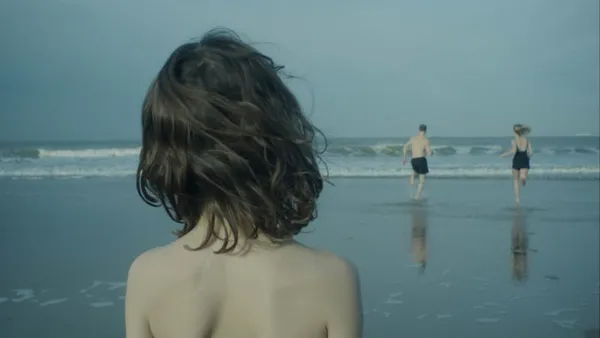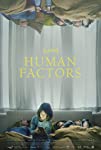Eye For Film >> Movies >> Human Factors (2021) Film Review
Human Factors
Reviewed by: Jeremy Mathews

Traumatic events can bring people closer together or push them apart. Films like Amores Perros have used such events as the centerpiece for interlocking stories from different characters’ perspectives. But Human Factors is a little different in that it’s about an incident in which no one is quite sure if anything worthy of trauma happened, and probably never will be.
Writer/director Ronny Trocker’s German character drama revolves around a family in collective yet isolated crisis: Nina and Jan, and their kids Emma and Max. While at their vacation home in Belgium, a home invasion takes place — or, at least, seems to. Jan was on his cell phone while returning from an errand and didn’t think the boom and shouting were worth hanging up the phone over. The more perspectives we see, the less sure we are that any intruders were even in the house.

We quickly learn that the family wasn’t exactly in prime form before the incident. Jan (Mark Waschke) and Nina (Sabine Timoteo) run an ad agency together — she’s a brilliant creative director and he manages a lot of accounts. However, he was in talks to do a campaign for a vaguely nationalistic political party, didn’t tell Nina, and now a magazine has reported on the news. This affiliation has made them nervous of the party’s opponents targeting them. As for the children, young Max (Wanja Valentin Kube) is often in his own world, dedicating his attention to his pet rat. His older sister Emma (Jule Hermann) is going through what you’d expect someone in their difficult teenage years to be going through.
The cast is universally strong, with Waschke and Timoteo playing off each other wonderfully as the strained couple. Trocker's screenplay and direction view the characters with a coy cynicism. When we’re seeing things from their point of view, that doesn’t mean we need to sympathise with them. Hell, it might even make us more aware when they’re being weasels.
The structure is more unpredictable and labyrinthine than a story that simply repeats the same timeline through different perspectives. It weaves through time and place, sometimes flashing back to the same character’s past, only to later pivot to a different character’s viewpoint without any chronological hiccup. Perhaps what makes the conceit so compelling is that it further emphasises the uniqueness of each individual’s experience — what’s important to one person may not be important to another, and that can include the time frame in which we should best observe them. Likewise, two characters might experience key moments at the same time, with no need to repeat the scene.
Added together, the elements create a compelling urgency by making the who, why and when of its movements unpredictable yet emotionally honest. Some might argue that the style is a crutch to make the story more interesting, and certain plot lines are stronger than others. But the structure actually serves to emphasise the characters’ struggles to come to terms with themselves and one another. Even on our best days, when we’re at our most compassionate, we’re still unavoidably locked inside ourselves.
Reviewed on: 30 Jan 2021
















